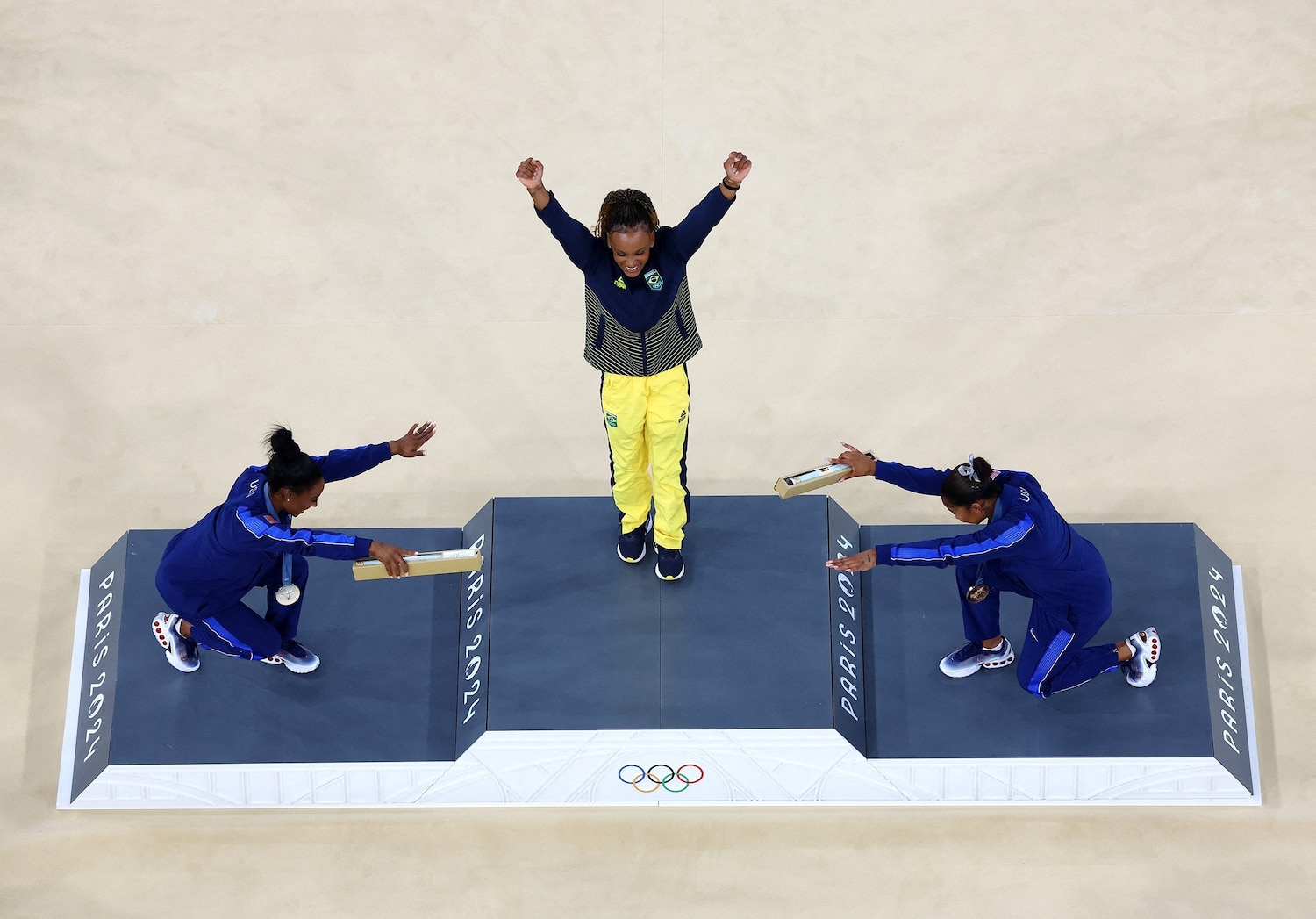Jordan Chiles - must give back her bronze medal
Anonymous
You can't concede that there can be any dispute as to whether she completed the skill? To be fair, it was probably the best one she ever did!! |
Anonymous
Dream on boo |
Anonymous
| Coaches should not be allowed to challenge. The ensuing drama is ridiculous. It was not a good look for the United States. Instead, Judges, take a little extra time. |
Anonymous
Show me a single statement by someone with gymnastics credentials arguing that Jordan didn't complete the element. I haven't see one. Even the Romanians haven't argued that she didn't complete the element--to the contrary, they conceded that she was deserving suggested that she share in the bronze medal. Their only challenge of her score related to the timing of the US inquiry, not the merit. There's lots to dispute here, but you've picked an element that isn't in dispute. |
Anonymous
|
Bullshit scandals like this are why I don't bother with the Olympics.
I used to like the beautiful sports like ice skating and gymnastics. But there are always judging favoritism allegations, doping scandals, harsh coaches, injuries, global political situations, etc. I'm glad for this athlete that she has a gold medal from another event so nobody can take away her accomplishment of reaching Olympic gold medalist status. In that circumstance, I personally would give up on pursuing this matter. |
Anonymous
They can't challenge field-of-play decisions—no one can. They are what they are, including the decision on the inquiry. If the inquiry stands, Jordan gets credit for it. So yes, the element is not in dispute at this point. I just disagree with USAG's decision to issue press releases complaining about the judging panel's decision to downgrade the skill. It isn't an issue now and should not be talked about by USAG at this point, given that the completion of the skill was borderline at best. They are misleading the public by suggesting that the original decision by the judging panel was a clear error, creating public outcry that the judges were incompetent. Hell, we have members of Congress writing to CAS claiming that Jordan's score original score was "miscalculated" and people writing to FIG wanting the judges banned. Here are photos of the skill Jordan was found by the Superior Jury, not the judging panel, to have completed within 30 degrees of 1 1/2 rotations. 
The judges didn't miscalculate—they saw an underrotation. The Superior Jury disagreed. There was no clear error on either's part, but at best, it was extremely close. |
Anonymous
I think it's regrettable that this photo was made into a big race-based story instead of respect between individual tough competititors or the US team laying off the "US = #1" long enough to respect another nation's winner. By setting this photo up as a racial moment, now the judging controversy has extra bad feelings tied to it. None of this was necessary. Should have been pitched as two individuals respecting a tough competitor that they know well. |
Anonymous
Ok random person on a message board. No one with any credentials seem in doubt of this call. You are taking sketchy screenshots to support an argument that only you are making. |
Anonymous
No. Someone said the US was late. They took away Jordan's medal. The US showed ACTUAL proof that they weren't late, IOC said, "We don't care." |
Anonymous
OK, so here's a quote from an article in the Washington Post yesterday. Chelsie Memmel, who is the technical lead of the USAG high performance staff and is also a Brevet judge qualified to judge elite competitions, said that she watched Jordan's performance in real time and thought to herself, "Hm, she could get that one." I guess she also doesn't know what she's talking about because she, too, didn't characterize the skill as clearly meeting the requirements. It was close but not obvious. |
Anonymous
So that comment was in real time. No one with credentials has questioned it after watching a replay. Not even the Romanians. |
Anonymous
I've heard a lot of people say that the excution score should have gone down along with the difficulty score going up. She executed it, but she executed it poorly |
Anonymous
|
Here comes the corruption. Apparently the head arbitrator for CAS, which ruled that the US was 4 seconds too late, is a lawyer whose main client is Romania. That's a huge non-waivable conflict of interest and potentially grounds for the Swiss court to throw out the CAS ruling.
https://www.nytimes.com/2024/08/13/world/europe/olympics-jordan-chiles.html |
Anonymous
O come on! The Chiles verdict was totally racist. |
Anonymous
So that is an interesting point about inquiries. You can challenge your D score, not the E score, but regardless of the outcome, the E score can't be adjusted. |

